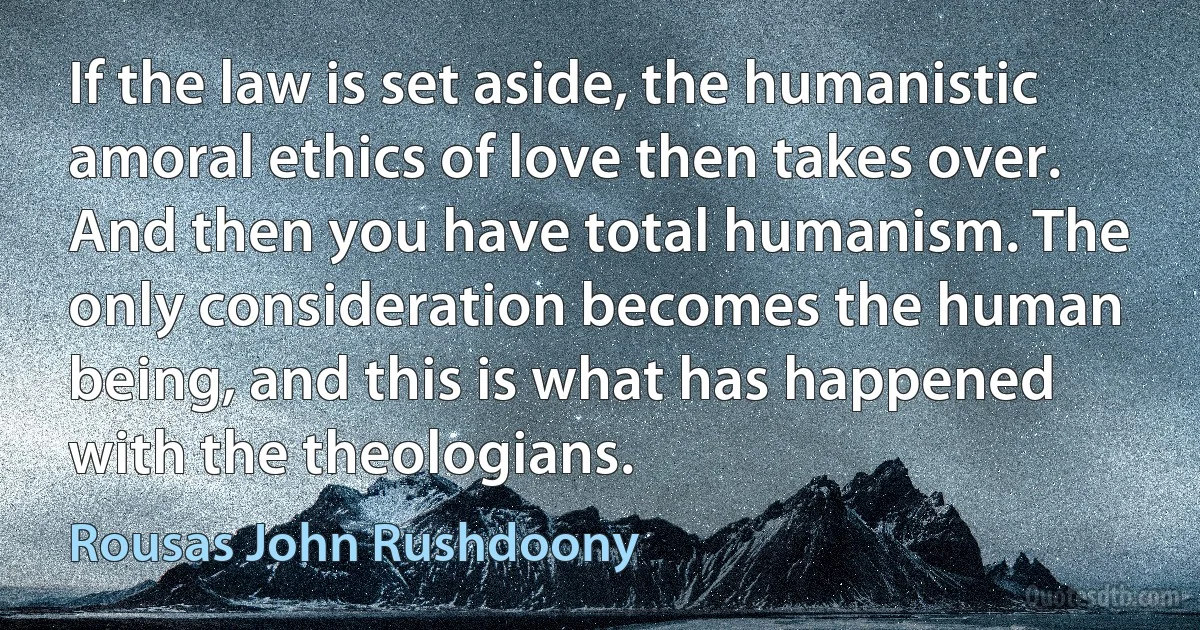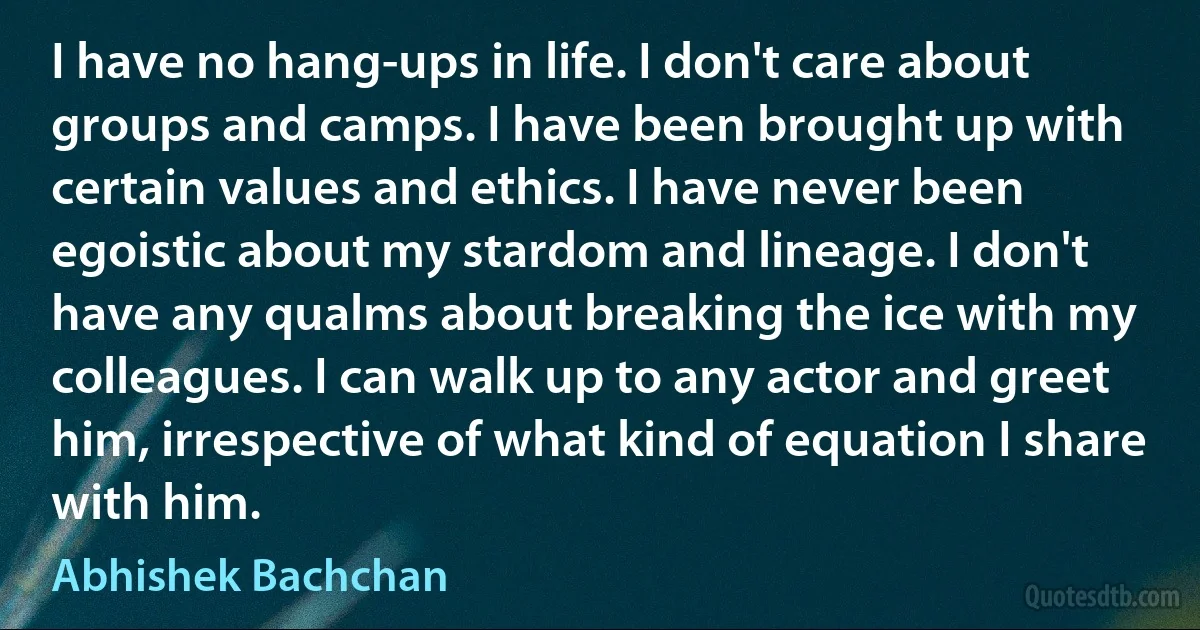Ethics Quotes - page 12
For the Confucian, the specialistic expert could not be raised to truly positive dignity, no mater what his social usefulness. The decisive factor was that the "cultured man" (gentleman) was "not a tool"; that is, in his adjustment to the world and in his self-perfection he was an end unto himself, not a means for any functional end. This core of Confucian ethics rejected professional specialization, modern expert bureaucracy, and special training; above all, it rejected training in economics for the pursuit of profit.

Max Weber
All ethics so far evolved rest upon a single premise: that the individual is a member of a community of interdependent parts. ... The land ethic simply enlarges the boundaries of the community to include soils, waters, plants, and animals, or collectively: the land. ... A land ethic changes the role of Homo sapiens from conqueror of the land-community to plain member and citizen of it. It implies respect for his fellow-members, and also respect for the community as such.

Aldo Leopold
With the advent of medieval Scholasticism, ... we find a clear distinction between theologia and philosophia. Theology became conscious of its autonomy qua supreme science, which philosophy was emptied of its spiritual exercises, which, from now on, were relegated to Christian mysticism and ethics. Reduced to the rank of a "handmaid of theology,” philosophy's role was henceforth to furnish theology with conceptual-and hence purely theoretical-material. When, in the modern age, philosophy regained its autonomy, it still retained many features inherited from this medieval conception. In particular, it maintained its purely theoretical character, which even evolved in the direction of a more and more thorough systemization. Not until Nietzsche, Bergson, and existentialism does philosophy consciously return to being a concrete attitude, a way of life and of seeing the world.

Pierre Hadot
People like your wife are dangerous.”
"Why?” Hamilton asked.
"They don't belong to any group. They fool around with everything. As soon as we turn our back-”
"So you destroy them. You turn them over to the lunatic patriots.”
"The lunatic patriots,” McFeyffe said, "we can understand. But not your wife. She signs Party peace petitions and she reads the Chicago Tribune. People like her-they're more of a menace to Party discipline than any other bunch. The cult of individualism. The idealist with his own law, his own ethics. Refusing to accept authority. It undermines society. It topples the whole structure. Nothing lasting can be built on it. People like your wife just won't take orders.

Philip K. Dick
She thought of the multitude.
Trillions of human beings, wrappend like a fog about their home star. The mind collapsed at the scale and the numbers. But if ethics meant anything at all, it meant not letting the largeness of the human population overwhelm our moral knowledge that life is lived individually, and that even when agglomerated into billions and trillions individual human beings deserve better han being used as tools. That the overwhelming majority of this vast mass of humanity was poor, living precariously and subsistence lives in leaky shanty bubbles, eating ghunk and drinking recycled water-this made this more, not less, true. These were the people least able to help themselves. Thery should be helped, not exploited.

Adam Roberts
"We're still the Black Company. We still don't leave our own behind.” Which was never strictly true but you do have to serve an ideal the best you can, lest it become debased. A law as ancient as coinage itself says bad money will drive out good. The same is true of principles, ethics and rules of conduct. If you always do the easier thing, then you cannot possible remain steadfast when it becomes necessary to take a difficult stand. You must do what you know to be right. And you do know. Ninety-nine times out of a hundred you do know and you are just making excuses because the right thing is so hard, or just inconvenient.

Glen Cook
Marriage and parenting are the two strongest vows anyone will ever make. When you see these commitments being carelessly discarded, you can be certain that the ethics of that generation have been abandoned. ... What our society needs is a good dose of biblical ethic from God's people - the kind of ethic that requires us to keep our word no matter what the costs. Situational ethics have so shaped our society that even God's people have lost the concept of absolutes when it comes to keeping our word.

Larry Burkett
Self-discipline, although difficult, and not always easy while combating negative emotions, should be a defensive measure. At least we will be able to prevent the advent of negative conduct dominated by negative emotion. That is 'shila', or moral ethics. Once we develop this by familiarizing ourselves with it, along with mindfulness and conscientiousness, eventually that pattern and way of life will become a part of our own life.

Dalai Lama
No man who aims at making his life an harmonious whole, pure, complete, and harmless to others, can endure to gratify an appetite at the cost of the daily suffering and bloodshed of his inferiors in degree, and of the moral degradation of his own kind. I know not which strikes me most forcibly in the ethics of this question the injustice, the cruelty, or the nastiness of flesh-eating. The injustice is to the butchers, the cruelty is to the animals, the nastiness concerns the consumer. With regard to this last in particular, I greatly wonder what persons of refinement-aye, even of decency-do not feel insulted on being offered, as a matter of course, portions of corpses as food! Such comestibles might possibly be tolerated during sieges, or times of other privation of proper viands in exceptional circumstances, but in the midst of a civilised community able to command a profusion of sound and delicious foods, it ought to be deemed an affront to set dead flesh before a guest.

Anna Kingsford



